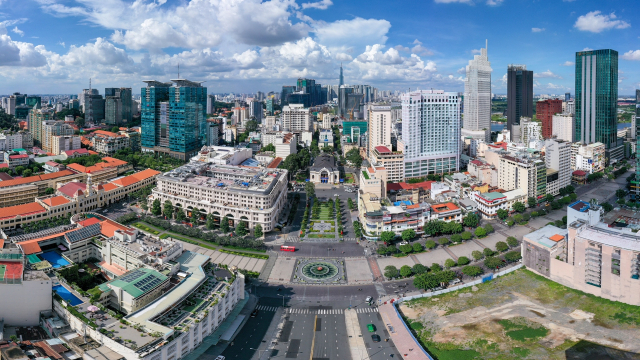Leader Talk
APAC corporate leaders call for clean energy coalitions
Frustrated by inconsistent government policy, companies in the APAC region are taking the lead and calling for intercompany coalitions to advance sustainability goals.

While much good progress has been made with the renewable energy transition, the APAC region has reached a critical point, said global renewable energy developer BayWa r.e. after surveying 346 energy decision influencers at organizations with 100 or more employees in Australia, Indonesia, Japan, Malaysia, Singapore, South Korea, Thailand, The Philippines, and Vietnam.
Headwinds and pressure in the region, such as the implications of the Russia-Ukraine war, lack of support from governments, and volatile prices of energy and interest rates pose a serious risk to the pace of change and climate goals.
Slow government implementation of renewable energy policies and unpredictable policy environments in local markets are listed within the top three barriers indicated by respondents, at 36 per cent and 33 per cent, respectively.
For example, more than half of respondents in Southeast Asia believe that instead of pushing for green energy, governments in this region will increase their support for fossil fuel-based energy in the next two to three years. While for corporations in Oceania and East Asia, 47 per cent believe that government support for fossil fuel-based energy will remain unstable in the next two to three years.
While the outlook for the renewable energy transition is one of the challenges and obstacles to be overcome, the urgent need for change is recognized by APAC corporates.
Close to half of the corporations surveyed have made energy transition a priority, with 48 per cent of APAC companies aiming to increase the use of renewable energy by more than 40 per cent over this decade. Within this group of companies, 79 per cent are looking to achieve it in the next five years, providing cause for optimism.
Companies surveyed also saw the value in transitioning towards cleaner energy options, including a better image, business advantage, and advantage in talent recruitment and retention at a time when large-scale commercial roof-top solar has become cheaper than subsidized power in Southeast Asia.
To help the transition towards green energy, 42% of APAC corporates believed that government tariffs on brown power will support their organization’s push towards renewable energy.
However, frustrated by inconsistent government policy, companies are taking the lead and calling for intercompany coalitions to advance sustainability goals.
“Challenges on the road to the transition will persist, and it will be imperative for corporates and governments to come together to overcome them. The APAC energy report has shown that corporate leaders are motivated to gather their peers and competitors and call for more public-private partnerships to fulfill the global net-zero goals”, said Niranpal Singh, Managing director Malaysia, BayWa r.e.
Corporate leaders surveyed for the report acknowledged the greater need to collaborate with peers and competitors and accelerate the clean energy transition. Two-thirds of companies that are leading the change towards renewable energy strongly agree that companies should form coalitions and work together to achieve sustainability goals. The exact number of respondents also indicated support for countries in APAC to work together to provide renewable energy.
The transition from traditional energy is now critical and must happen at a much greater pace. Corporate decision-makers must take the lead in powering the change within APAC and band together, while working with and putting pressure on governments, to accelerate this process and rapidly advance renewable energy adoption.
“We hope that with this urgent call to action, substantial progress can be seen in green energy adoption within the APAC region,” said Niranpal Singh.
Resilient supply chains for Vietnam’s green transition
Vietnam turns semiconductor vision into action
The global semiconductor industry is being reshaped by geopolitical tensions, shifting supply chains, and the surge of digital technologies.
Cutting red tape in APA approvals to speed up tax negotiations
The change in APA approval authority is expected to shorten processing time and enhance business proactiveness in international tax negotiations.
Enterprise cybersecurity is under threat from the inside
As hybrid cloud systems grow more complex, Vietnamese enterprises are struggling to detect cybersecurity threats moving laterally within their own networks.
Breakthrough for the international financial center ambition
The submission of the draft resolution on Vietnam’s international financial center to the National Assembly heralds a new developmental era for the country.
How leadership philosophy redefines hospitality in Nha Trang
More than just running a 5-star resort, Kristian Petersen is redefining the art of hospitality with a humane and sustainable leadership philosophy.
When organic becomes an inspiring wellbeing lifestyle
For Tyna Huynh, co-founder of Drinkizz, organic is not just a food choice but a way of life that fosters a deep connection between people, nature and community.










































